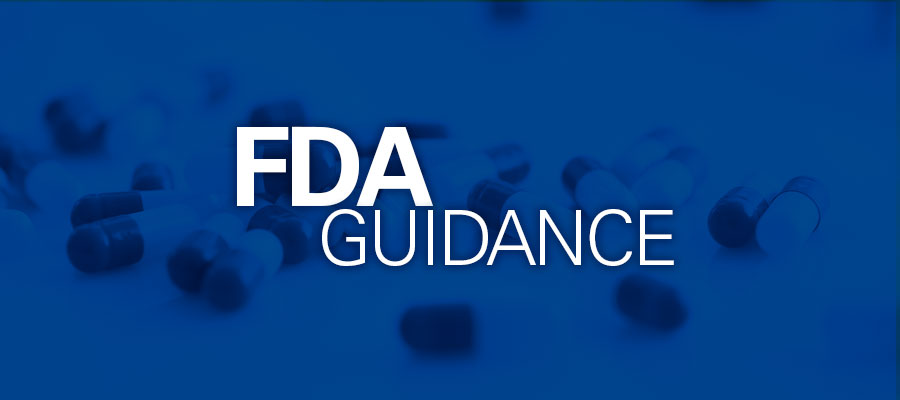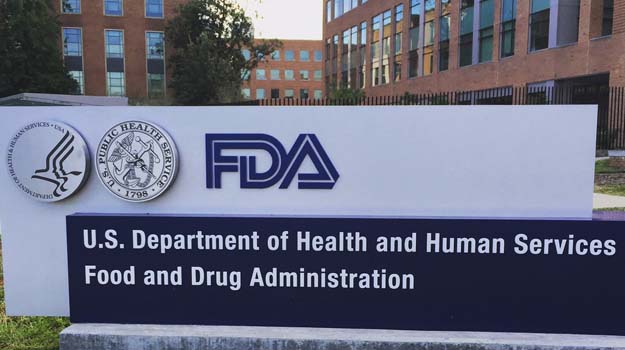The Food and Drug Administration (FDA) has published an enforcement policy for modifications to FDA-cleared molecular influenza and RSV tests in the context of the outbreak of the COVID-19, and the public health emergency associated thereto.

Important notes
Due to the importance of the matters addressed in the document, it should be subject to immediate implementation without prior public consultations prescribed under the general rules. However, according to the official announcement, industry representatives are still allowed to submit comments and suggestions that would be considered by the authority in the future versions of the policy. It is also important to mention that in accordance with the applicable legislation, the FDA guidance documents do not introduce mandatory requirements to be followed by all the parties involved. By the means of the guidance publication, the Agency describes the recommended approach to be applied in order to achieve and sustain compliance with the applicable requirements. At the same time, the medical device manufacturers are allowed to use another approach, providing it would be compliant with the applicable regulations and also agreed with the authority in advance. The present policy would remain in force only during the public health emergency, while upon its termination the general rules should be used.

Regulatory Background
The present FDA guidance is intended to ensure and expand the availability of the FDA-cleared molecular assays used to detect and identify influenza (flu) viruses, including the ones used to detect respiratory syncytial viruses (RSV). The aforementioned devices are being actively used during the influenza season, and also in the context of the COVID-19 pandemic.
The importance of the medical devices described above is actually based on the fact that the same signs and symptoms could be associated with the COVID-19 and certain respiratory illnesses, and tests used to detect the appropriate viruses often use the same components. For instance, most of these tests require a sample to be collected from the patient and then transported to the laboratory for further investigation. Such sample collection and transportation components are also being used in the context of COVID-related tests placed on the market under the Emergency Use Authorization (EUA) – a special framework allowing to market medical devices that are vitally important using the simplified and accelerated procedure, providing that the proper benefit-risk balance is met.
The present FDA policy describes the way the alternative specimen collection devices and transport media could be used during the COVID-19 outbreak. The Agency acknowledges the importance of ensuring the uninterrupted availability of the medical devices outlined hereabove, especially during the influenza season. The authority states that all patients should be able to receive accurate and reliable information about the potential infection.
Scope of the FDA Policy for Molecular Influenza and RSV Tests
The scope of the present FDA policy covers FDA-cleared qualitative molecular assays initially intended to detect and identify influenza viruses for the patients with the present signs and symptoms of the appropriate respiratory infections. The scope also includes the tests intended to detect the RSV.
According to the applicable regulation, the tests falling within the scope of the policy are Class II medical devices regulated under 21 CFR 866.3980 (Respiratory viral panel multiplex nucleic acid assay) with the product codes OCC, OZE, and OEP respectively. The Agency additionally emphasizes that the present policy should be applied only for the devices intended for the purposes outlined hereabove.
At the same time, the FDA explicitly indicates the medical devices falling outside the scope of the policy, namely:
- Ones intended to detect other viruses since, in accordance with the current thinking of the authority, the changes described in the policy could affect negatively the effectiveness of such devices. The list of product codes related to excluded devices includes OEM, OOU, OQW, OTG, OZX, OZY, OZZ.
- Antigen-based influenza tests.
- Multiplex respiratory panels intended for the detection of emerging respiratory pathogens and common respiratory pathogens.
- Molecular diagnostic multiplex tests placed on the market under the appropriate EUA and intended to detect the novel coronavirus.

Enforcement Policy in Detail
As it is stated by the Agency, the components for molecular influenza tests could face a significant increase in demand during the COVID-19 outbreak since molecular influenza and RSV tests are being widely used to distinguish the aforementioned infections from the novel coronavirus. As the first step, in order to ensure and expand the availability of the transport media, the FDA has also issued the appropriate guidance.
According to the applicable regulations, the medical device manufacturers shall submit a 510(k) premarket notification and obtain the FDA clearance in order to be allowed to place such devices on the US market. Moreover, they should also achieve and sustain compliance with the applicable post-market requirements. The Agency also mentions that some of the devices in question could be used solely with the specific specimen collection devices and/or transport media indicated by the manufacturer. In such cases, an additional clearance would be required to allow the use of these medical devices with other components, providing that this would not impact the effectiveness of the devices and the accuracy and reliability of the test results. Actually, in such cases, a new premarket notification would be required, while the labeling of the device should be amended accordingly.
At the same time, due to the importance of uninterrupted availability of the molecular influenza tests during the pandemic, the Agency is not going to object to the certain modifications described in the present FDA policy. Together with the aforementioned easing, the Agency also is not going to apply special controls prescribed by 21 CFR 866.3980(b) outlining the information to be submitted by the medical device manufacturer in case of the changes made to the medical device in question.
In particular, the FDA intends to allow certain modifications to the FDA-cleared molecular influenza and RSV tests, providing that such modifications:
- Do not result in increased risk for the patients, and
- Are intended to add sterile phosphate-buffered saline (PBS) and sterile normal saline as additional transport media types, or
- Are intended to add use with anterior nares specimens and/or mid-turbinate specimens collected by the healthcare provider.
The Agency also provides examples of the changes that, according to the current thinking of the authority, would result in an undue risk for the patients. Such changes include, inter alia, the following ones:
- Adding a new sample type that was not identified above,
- Adding an indication for use with self-collected specimens,
- Adding a transport media other than identified above,
- Adding an over-the-counter (OTC) use of a new patient population to the current indications for use.
Summarizing the information provided here above, the present FDA enforcement policy for molecular influenza and RSV tests describes the measures taken by the authority to expand the availability of such devices during the pandemic. In particular, the document provides the medical device manufacturers with the additional information regarding the changes the Agency allows to make to the FDA-cleared devices without the mandatory submission of a new 510(k) premarket notification as it is usually required in case of such changes under the general rules and regulations.
How Can RegDesk Help?
RegDesk is a next-generation web-based software for medical device and IVD companies. Our cutting-edge platform uses machine learning to provide regulatory intelligence, application preparation, submission, and approvals management globally. Our clients also have access to our network of over 4000 compliance experts worldwide to obtain verification on critical questions. Applications that normally take 6 months to prepare can now be prepared within 6 days using RegDesk Dash(TM). Global expansion has never been this simple.
Sources:

